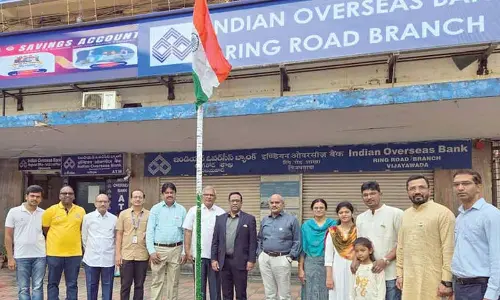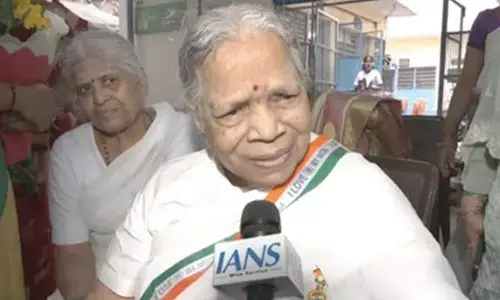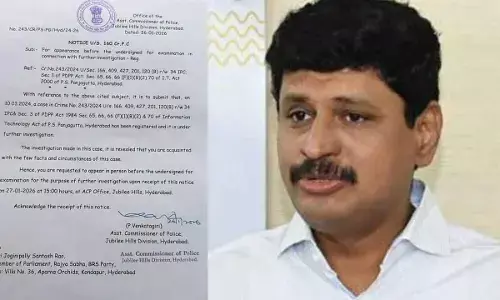IISER develops new photocatalyst ‘UC-POP-Au’

A team of researchers at the Indian Institute of Science Education and Research (IISER) Bhopal has developed an effective photocatalyst - a substance that absorbs a wide range of solar energy and light - to quicken chemical processes in laboratories and industries.
Bhopal: A team of researchers at the Indian Institute of Science Education and Research (IISER) Bhopal has developed an effective photocatalyst - a substance that absorbs a wide range of solar energy and light - to quicken chemical processes in laboratories and industries.
This new, sustainable development contributes to harnessing a renewable energy source for detoxifying harmful substances such as chemical warfare agents.
Chemical warfare agents include mustard gas simulants like ‘2-chloroethyl ethyl sulfide’ (CEES) and nerve agents, which are highly poisonous chemicals that affect a person’s nervous system.
This research represents a significant advancement in the field of photocatalysis - a process where a substance (a photocatalyst) is used to change the rate of a chemical reaction when exposed to light. While many different types of photocatalysts are used in various industries for effective light harvesting, they all suffer from a drawback in that they only absorb UV or high-energy parts of light.
But the novel photocatalyst called ‘UC-POP-Au’ displays remarkable strength and catalytic efficiency as it absorbs the entire spectrum of light, making it a more potent catalyst during chemical processes.
“The current investigation unveils a novel direction in the development of advanced light-harvesting porous organic polymer nanocomposite materials, showing potential applications in designing smart protective coatings against chemical warfare agents under natural sunlight conditions,” said Prof. Abhijit Patra, Department of Chemistry, IISER Bhopal.
This composite material has integrated near-infrared absorbing upconversion nanoparticles and visible light absorbing gold nanoparticles with UV rays absorbing conjugated porous organic polymer (POP).
The use of upconversion and gold nanoparticles enhances the chemical reaction so drastically.
“We have developed an innovative design approach that involves the integration of plasmonic and upconversion nanoparticles with a conjugated porous organic polymer, which opens up new vistas towards artificial light harvesting,” Patra said.
The findings are published in the peer-reviewed journal Angewandte Chemie.
To test the applicability of this photocatalyst, the team coated a small piece of cotton cloth with the UC-POP-Au under direct sunlight to detoxify mustard gas simulant, a popular chemical warfare agent. Displaying excellent performance compared to a regular polymer-based photocatalyst, the UC-POP-Au significantly expedited photocatalysis.
The photocatalyst is also reusable and can be used five times over. No significant change in the catalytic activity was observed during multiple uses, unlike some other catalysts, which can not be collected and reused.
The team suggests that UC-POP-Au can also be used for creating personal protective equipment and has high application potential as promising materials for various other industries beyond the detoxification of chemical warfare agents.

















